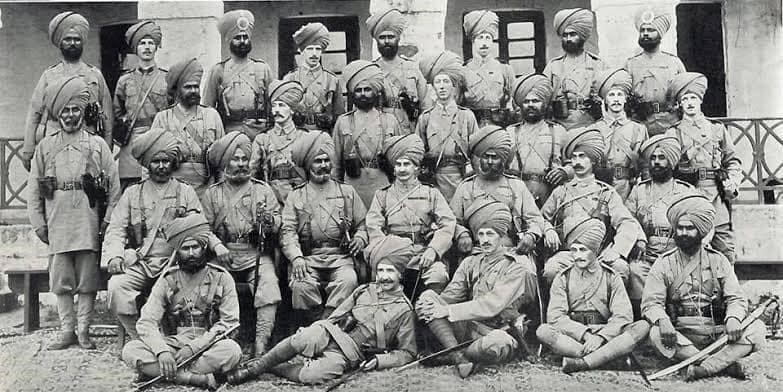This year’s Anzac Day observances in New Zealand – as in all other parts of the world ravaged by Covid-19 – were like never before, with no Dawn Services, congregations, pageantry or public events. Instead, people stood in their driveways, by their mailboxes, to commemorate the brave departed, playing recorded versions of the Last Post, there being neither bugle nor bugler.
The day as we all know is observed to perpetuate the memory of more than 8,000 Australians and nearly 3,000 New Zealanders who laid down their lives fighting for the British Empire on the Gallipoli Peninsula in the course of World War-I.
But what is forgotten, most unfortunately even by many of us Kiwi Indians let alone most New Zealanders, is that the spirit of Anzac Day has a deep Indian connection.
The Gallipoli campaign resonated profoundly among all nations involved. For New Zealand and Australia, the campaign was the first major battle undertaken by a joint military formation, the Australian and New Zealand Army Corps (ANZAC), and is often considered to mark the birth of national consciousness in both of these countries.
Observance of the day has never diminished in importance over the generations with its centenary observed in 2015. While many of us Kiwi Indians have participates in Anzac Day activities like the Dawn Service and parades all over the country, few of us are aware of the role Indian soldiers played in the Gallipoli campaign that ran from April 25, 1915 to January 9, 1916.
Being subjects of the Crown under British rule in India, Indians had no choice but to participate in World War-I – a war that was certainly not of their making and a war that they were sent to fight in simply because they were recruits of the British Indian Army.
Of the estimated 47,000-odd Indian soldiers that were killed during the four-year war, which also saw over 65,000 Indians wounded, 1,358 died in the Gallipoli campaign and some 3,421 were injured. Fewer Indians than New Zealanders and Australians died at Gallipoli, but their number was significant.
Records tell us that 371 of the Indians who died fighting at Gallipoli were from the battalion of the 14th Sikh regiment on June 3 and 4 1915. General Sir Ian Hamilton was in charge of the troops against the Turks during that operation and he wrote glowingly of this regiment that fought valiantly.

In a letter to his Commander-in-Chief back in India, he wrote: “In spite of the tremendous losses there was not a sign of wavering all day. Not an inch of ground was given up and not a single straggler came back.
“The ends of the enemy’s trenches were found to be blocked with the bodies of Sikhs and of the enemy who died fighting at close quarters, and the glacis slope was thickly dotted with the bodies of these fine soldiers all lying on their faces as they fell in their steady advance on the enemy.
“The history of Sikhs affords many instances of their value as soldiers, but it may be safely asserted that nothing finer than the grim valour and steady discipline displayed by them on the 4th of June has ever been done by soldiers of the Khalsa.
“Their devotion to duty and their splendid loyalty to their orders and to their leaders make a record their nation should look upon with pride for many generations.”
This battle involving the 14th Sikh regiment has been honoured with a mention in monuments in the UK, though there aren’t many records of the thousands of others who died elsewhere fighting for the Crown in other war theatres during World War-I.
While honouring New Zealand soldiers here in our adopted country, we Kiwi Indians must also make special efforts to perpetuate the memory of all the valiant soldiers who laid down their lives including the Sikh regiment that fought alongside New Zealanders and Australians at Gallipoli – besides the unnamed thousands who died during the four year war.
We cannot afford to forget our forefathers’ contributions and sacrifices in the war effort any less than we can of those New Zealanders and Australians who fought alongside them. It is sad that both Kiwi Indian political and community leaders do little to keep this hallowed legacy in the public discourse and the wider community as much as it deserves.
This is especially relevant in these times when the racist elements in the New Zealand polity, public life and the citizenry need to be starkly reminded that our forefathers fought shoulder to shoulder against a common enemy and sacrificed their lives to give us the peace, prosperity and plenty that we now enjoy.
We need to emphatically remind one and all about the sacrifices of our forebears, particularly to politicians who single out Kiwi Indians in their wanton discriminatory comments, especially in more recent times.
Our forebears died as equals with the Australians and New Zealanders who laid down their lives. We have every right to live together as equals. This pursuit of this ideal alone is a worthy monument to the ultimate sacrifice of those who went before us.
Lest we forget.
*
Dev Nadkarni is the found editor of the Indian Weekender